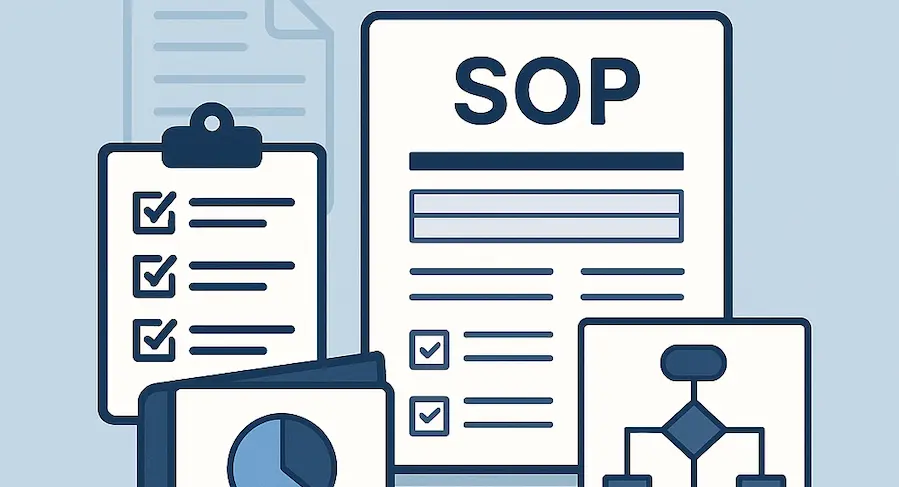Three months into using Trainual, Sarah from a growing tech startup realized her team was spending more time figuring out the platform than actually learning from it. Sound familiar? You're not alone.
While Trainual has established itself as a popular choice for employee training efforts, compliance training, and onboarding processes, many companies find themselves hitting walls with pricing plans, complexity, or missing key features they desperately need.
Recent data shows that 59% of employees report having received no workplace training, and choosing the wrong training platform only makes things worse. Whether you're dealing with a steep learning curve, budget constraints, or need more robust features, some Trainual competitors might be a better fit for your growing team's online courses and training efforts.

In this guide, you'll discover the best Trainual alternatives, understand what makes each unique, and learn how to pick the right training platform for your specific needs. We'll also cover common traps to avoid when switching platforms, so you can make a confident decision that actually improves your continuous learning, training, and onboarding processes.

What are Trainual alternatives?
Trainual competitors are platforms that serve the same core purpose as Trainual – helping business owners create courses for structured employee training, process documents, and streamline training and onboarding processes. These alternatives often offer different approaches to solving the same fundamental problems: how to effectively train new team members, maintain consistency across teams, and keep everyone aligned with company procedures.
The key difference of Trainual alternatives lies in execution. While Trainual focuses on comprehensive documentation and step-by-step training modules, the best Trainual alternatives may emphasize automation, AI-powered features, or specialized functionality tailored to specific industries. Some prioritize simplicity and ease of use, while others offer more advanced customization tools and process management capabilities.
What makes a platform a true alternative isn't just similar key features – it's the ability to solve your specific training challenges more effectively. This might mean better process documentation, more intuitive interfaces, or pricing plans that actually scale with your business without breaking the bank.
Why companies look for Trainual alternatives
The decision to explore the best Trainual alternatives usually stems from real pain points that impact daily operations.
- Cost is often the biggest factor – Trainual's pricing plans can quickly become expensive as you add multiple users, especially for smaller teams that need robust training and more interactivity capabilities, but can't justify the enterprise-level investment.
- Many users also report challenges with Trainual's interface and learning curve. While the platform is comprehensive, some teams find it overly complex for their straightforward training needs. Creating training content can be time-consuming, and the lack of AI-powered automation means everything requires manual setup and maintenance.
- Integration limitations present another common frustration. Companies using Microsoft Teams or other collaboration tools often struggle with powerful no-code workflow integration. The platform's limited customization options can also be restrictive for businesses with unique training processes or branding requirements.
- Performance tracking and analytics represent another gap. While Trainual provides basic reporting, many companies need more detailed insights into training effectiveness, learning progress, and knowledge retention. Some alternatives to Trainual offer more sophisticated analytics and knowledge bases that help optimize training programs over time.
- Customer support quality varies significantly in user reviews. When your team is stuck during critical training and onboarding periods, responsive, dedicated support becomes essential. Customer-facing teams often switch to alternatives that offer better community support or more responsive customer service teams.
Top Trainual alternatives to know
Let's examine the best Trainual alternatives that address these common pain points, each bringing unique strengths to employee training and process documentation.
MagicHow
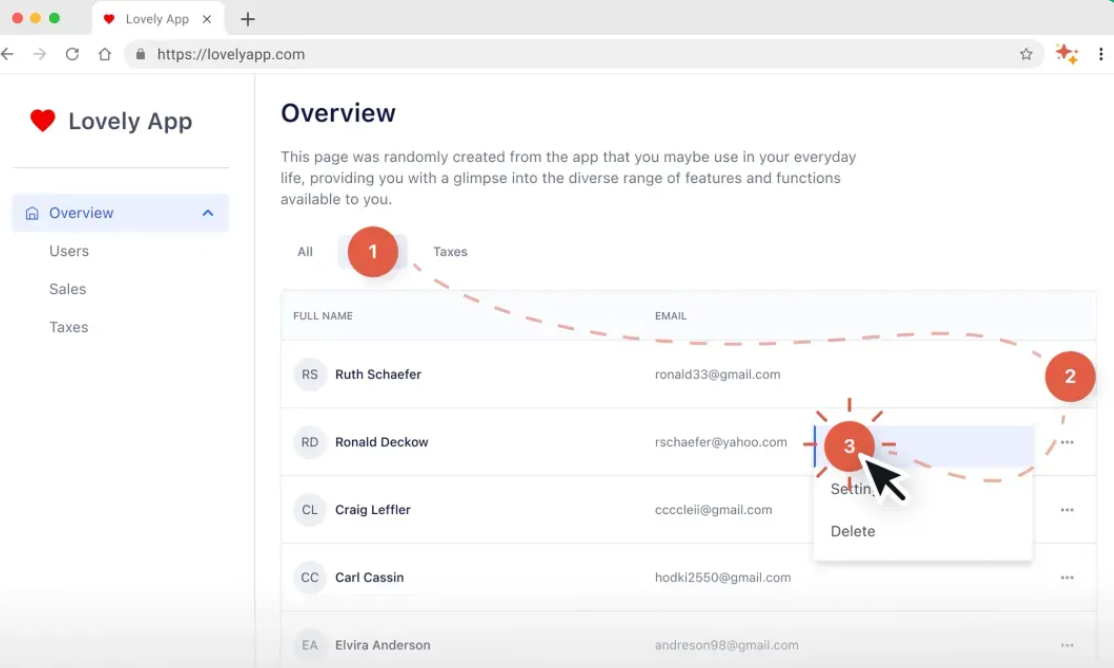
MagicHow stands out as the best Trainual alternative for businesses prioritizing speed and automation in their process documentation efforts. This AI-powered tool revolutionizes how companies create step-by-step guides, training manuals, and standard operating procedures by automatically capturing and documenting processes as you perform them.
What sets MagicHow apart is its effortless approach to training content creation. Instead of manually writing out procedures, you simply perform the process while MagicHow records screenshots and creates logical steps automatically. This eliminates the time-intensive documentation process that makes other platforms feel burdensome.
Key advantages
- Automatic process capture: No more manual screenshot taking or step-by-step writing
- Sensitive data protection: Built-in blurring capabilities for confidential information and knowledge bases
- Professional customization: Add logos, adjust styling, and create branded training materials
- Multiple sharing options: Direct links, PDF exports, HTML/Markdown formats, or embed in Notion and Confluence
- Desktop and browser compatibility: Works across Chrome, Firefox, Edge, and Safari
The platform excels in industries requiring detailed process standardization, from HR onboarding to dedicated support training. Unlike Trainual, MagicHow generates professional documentation in minutes, not hours.
For teams frustrated with complex interfaces and manual content creation, MagicHow offers the simplicity of automated documentation with the professionalism of enterprise plan training materials.
Signup now and use our user-friendly interface for efficient employee training without the steep learning curve.
Document360
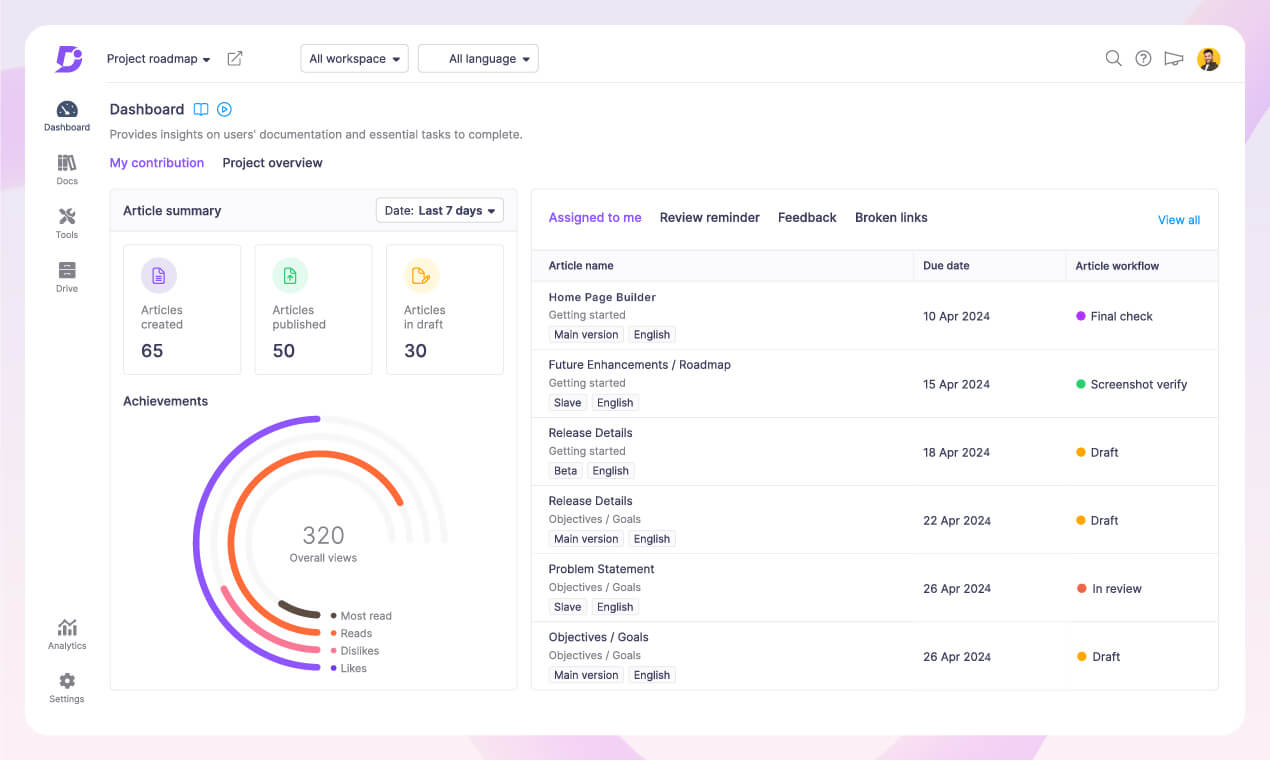
Document360 positions itself as an AI-powered knowledge base that simplifies SOP creation with SOP software while maintaining searchability and rich analytics. The platforms help you share SOP documentation with your users using social learning features.
The platform excels at creating searchable, organized documentation that employees can actually find when they need it. Unlike traditional training platforms, Document360 focuses on making information discovery easy through powerful search capabilities, a decent knowledge base, and intuitive organization structures.
Key features include AI-assisted content creation, advanced analytics to track training and document usage, and robust customization options that allow companies to maintain their brand identity throughout the training experience.
Process Street
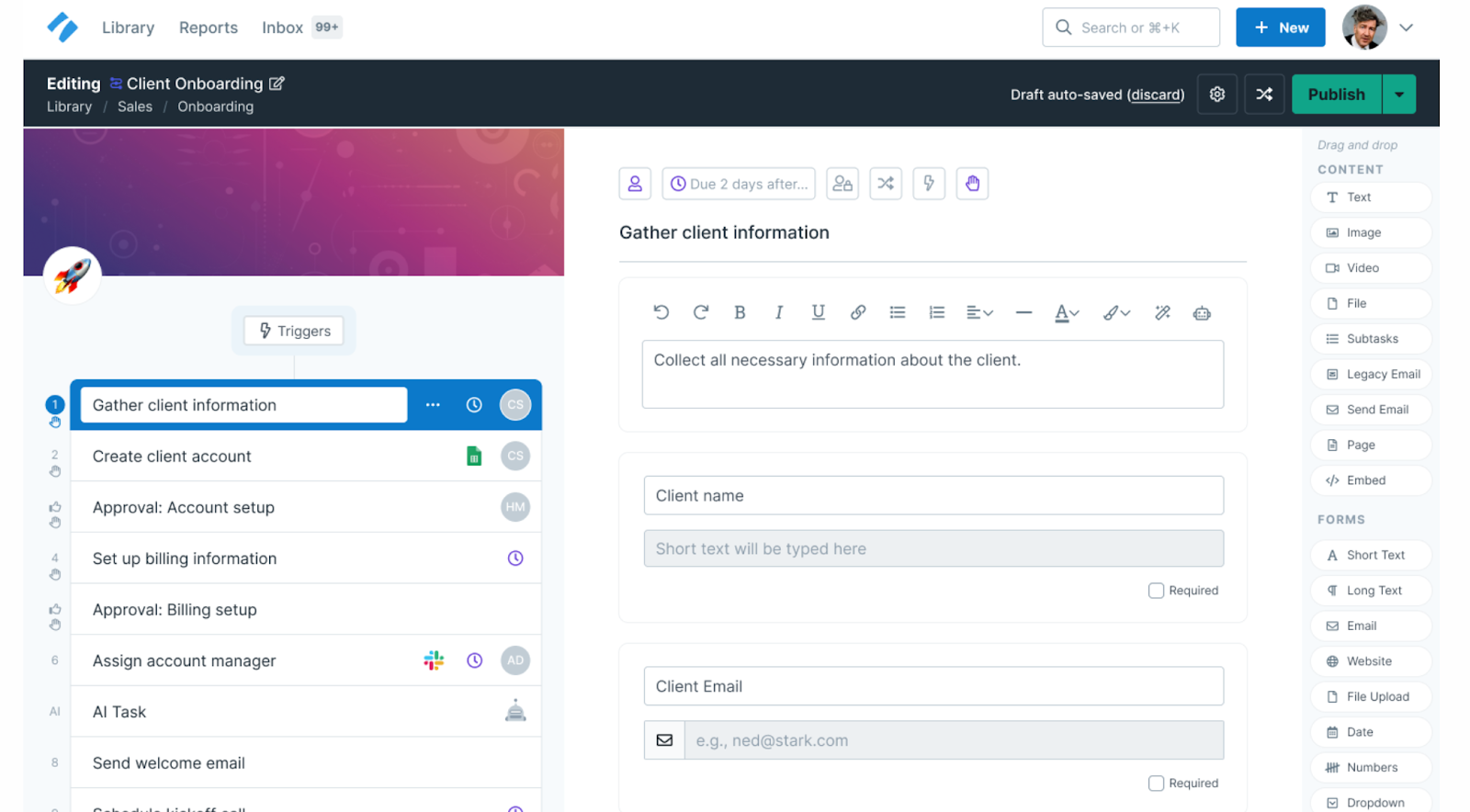
Process Street combines standard operating procedures with automated workflows and AI monitoring, making it particularly valuable for compliance-heavy industries. Process Street is suited for those aiming to automate and optimize their workflows.
The platform goes beyond simple documentation by adding conditional logic and automation capabilities. This means your training processes can adapt based on user input, automatically trigger follow-up actions, and maintain compliance through built-in monitoring systems.
Process Street shines in environments where training and ongoing process management intersect, offering key features like conditional workflows, automated task assignments, and comprehensive audit trails that many traditional training platforms lack.
Scribe
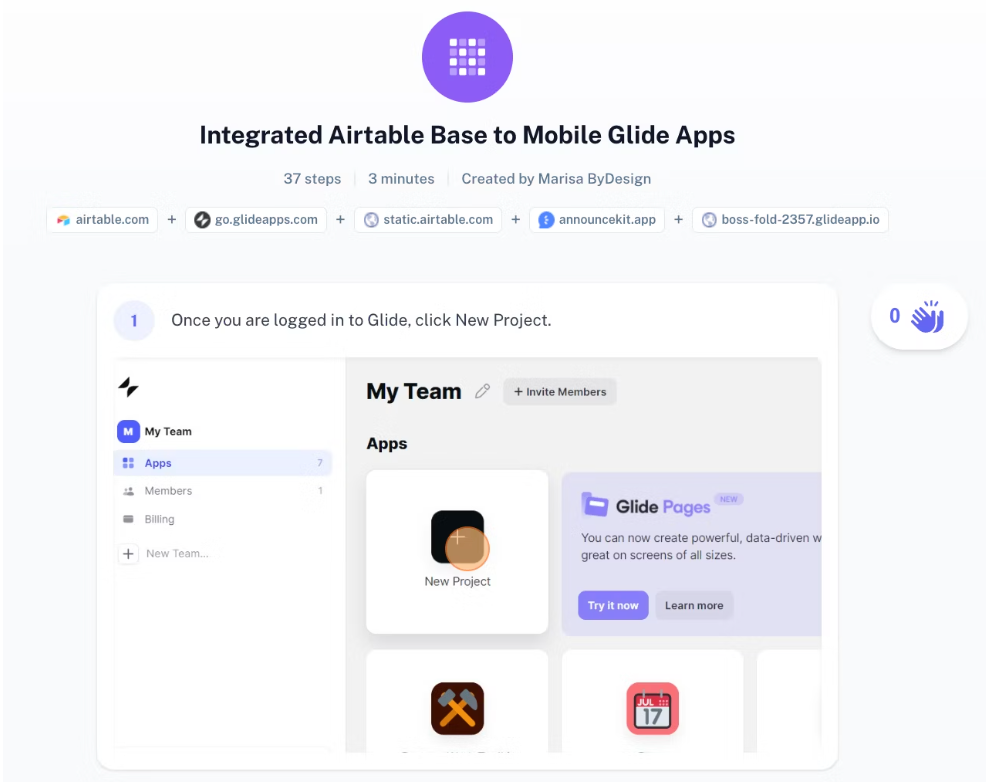
Scribe automates step-by-step guide creation through screen recording, making it ideal for fast process documentation needs. The platform captures your screen actions and automatically generates written instructions, similar to MagicHow, but with a different approach to creating documents.
What makes Scribe unique is its focus on rapid documentation generation for software-based processes. Teams can quickly create training materials for new software implementations, system changes, or routine procedures without the manual effort typically required.
The platform works particularly well for technical training scenarios where precise click-by-click instructions are essential for success.
TalentLMS
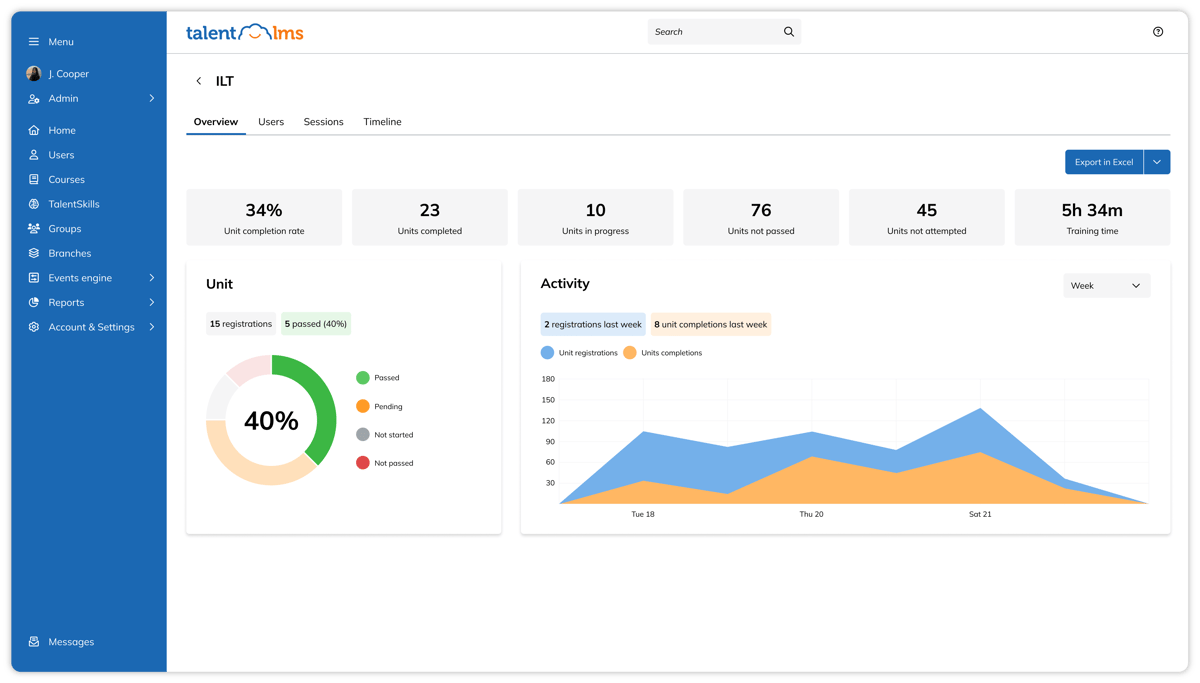
TalentLMS takes an LMS-first approach while incorporating gamification and multi-channel course delivery. The platform focuses on making learning fun and engaging through game-like elements, badges, and interactive features that increase completion rates.
The system offers mobile learning and interactivity capabilities and supports various content formats, making it accessible for distributed teams. Its gamification features can significantly improve engagement rates compared to traditional documentation-heavy approaches.
TalentLMS scales well for growing teams and offers flexible pricing models that accommodate different organizational sizes and needs.
Absorb LMS
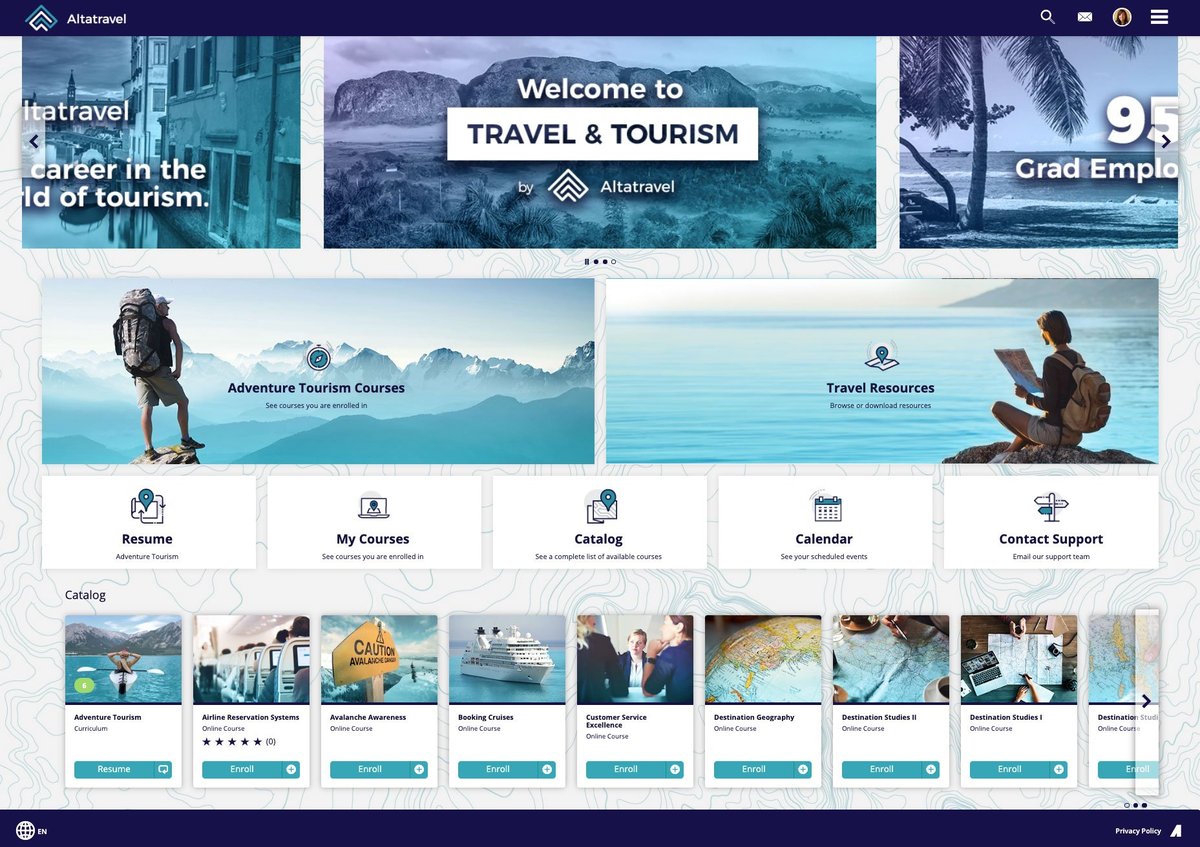
Absorb LMS provides AI-driven learning management with strong compliance features, mobile learning capabilities, and detailed reporting suitable for enterprise-level requirements. The platform emphasizes data-driven insights and automated learning path recommendations.
Key strengths include advanced reporting capabilities, compliance tracking, and third-party tool integration options with existing enterprise systems. The platform handles complex organizational hierarchies and provides detailed analytics that help optimize training effectiveness over time.
Absorb LMS particularly appeals to larger organizations requiring sophisticated reporting and compliance documentation.
Whale

Whale receives praise from users for easier setup and better usability compared to Trainual, with faster onboarding and superior customer support. The platform focuses on simplicity without sacrificing functionality, making it popular among small to medium-sized businesses.
User reviews consistently highlight Whale's intuitive interface and responsive support team. The platform offers straightforward pricing plans and doesn't require extensive technical setup to get started.
Whale's strength lies in its balance of functionality and ease of use, making it accessible for teams without dedicated training specialists.
SC Training (EdApp)
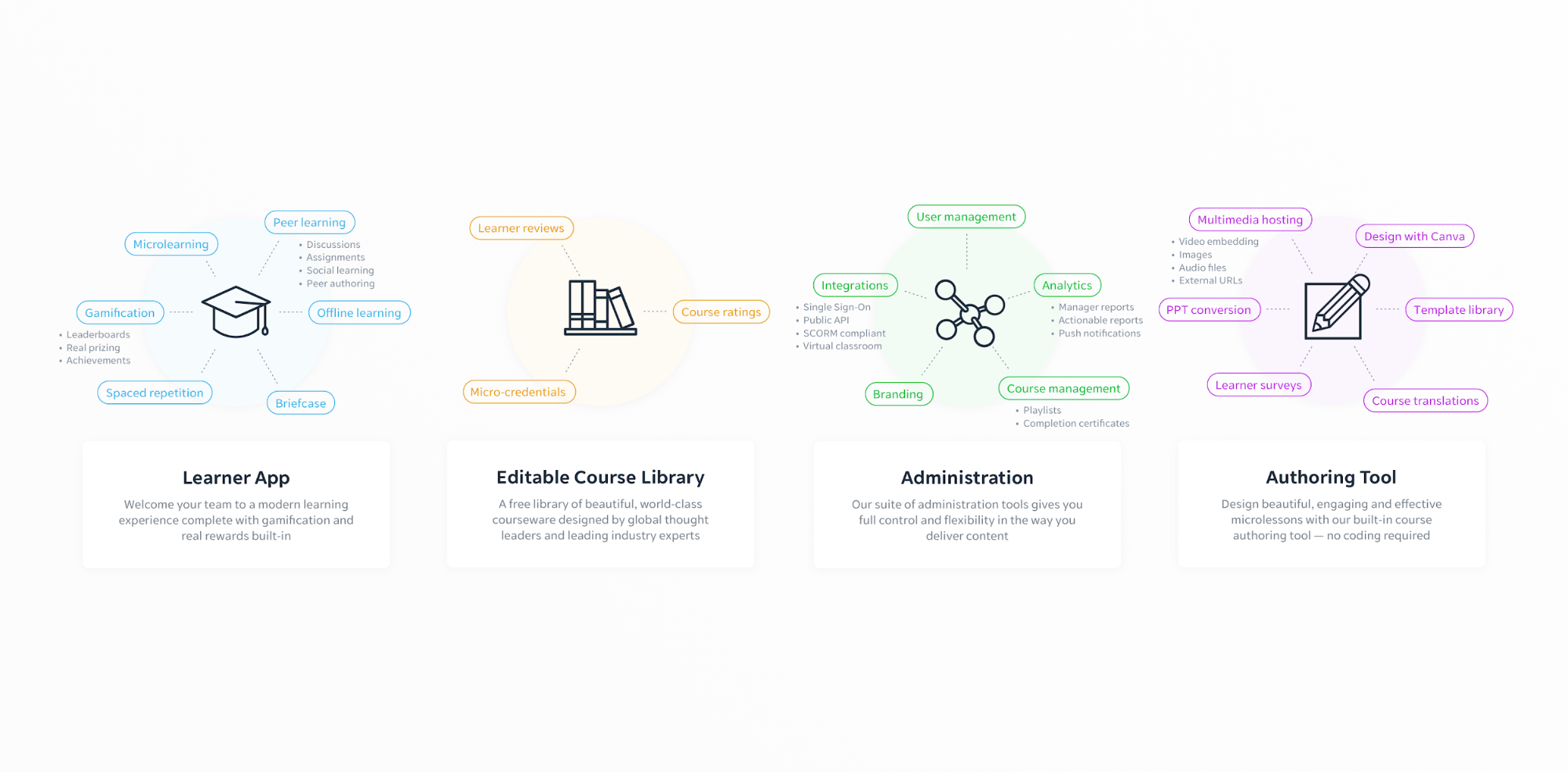
SC Training offers budget-friendly options with a free plan supporting up to 10 users, an intuitive design, and AI-assisted course creation. The platform democratizes access to professional training tools for smaller organizations.
The free tier provides substantial functionality, making it attractive for startups and small teams. The AI assistance helps create engaging content without requiring instructional design expertise.
SC Training's mobile-first approach ensures training accessibility across different devices and work environments.
Tallyfy
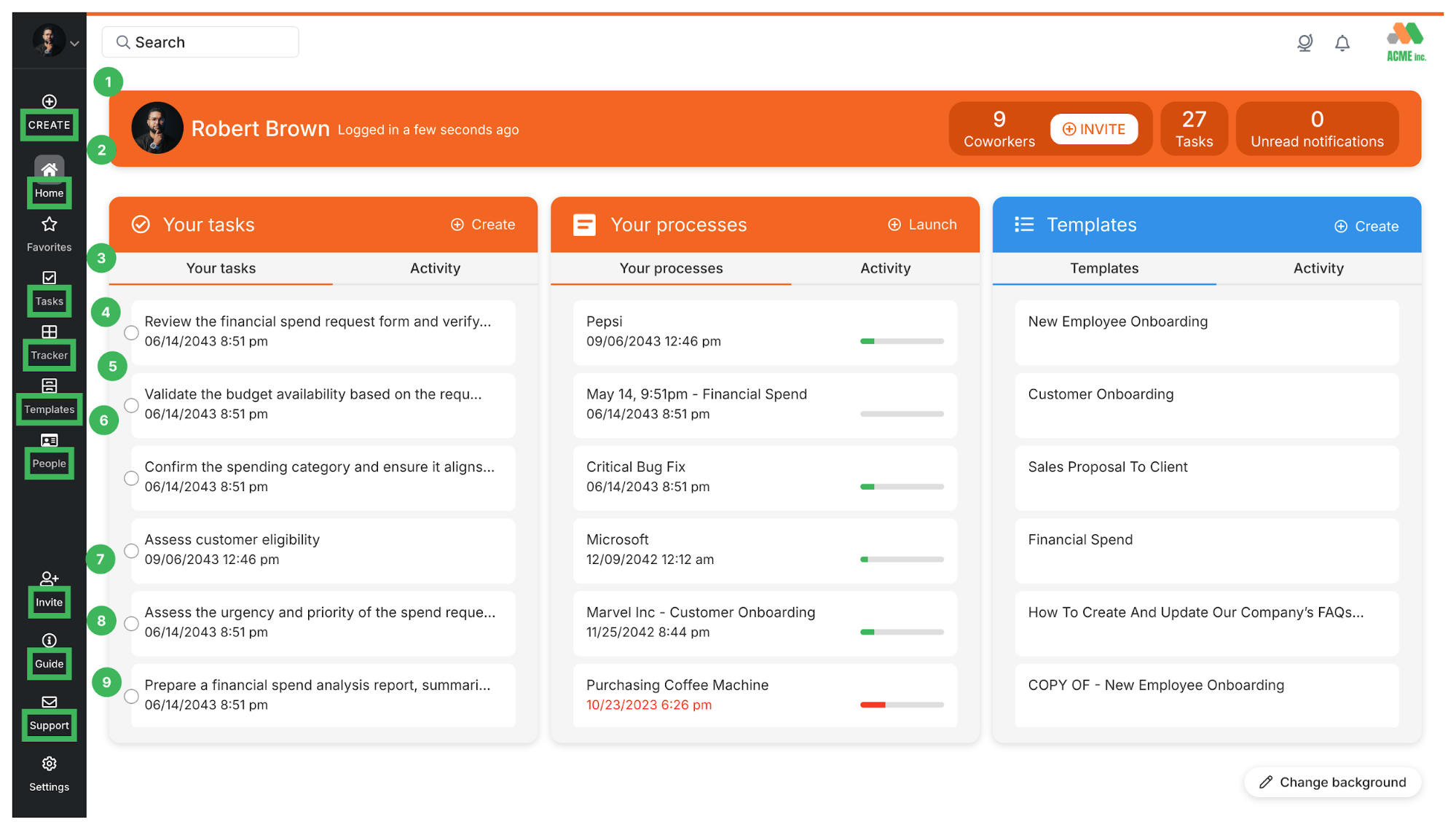
Tallyfy focuses on automating processes rather than just documenting them, offering lifetime 1:1 support and process optimization features. The platform emphasizes workflow automation and continuous improvement.
What distinguishes Tallyfy is its commitment to ongoing learning, support, and process refinement. The lifetime support model provides confidence for long-term platform adoption without worrying about escalating support costs.
The platform works well for organizations seeking to evolve beyond static documentation toward dynamic, automated training processes.
Trainual alternatives comparison table
How to pick the right alternative for you
Choosing the right Trainual alternative starts with honestly assessing your current training challenges. Are you spending too much time creating documentation? Do you need better automation? Is cost the primary concern? Your specific pain points should guide your decision, not feature lists.
- Consider your team's technical comfort level. If your employees struggle with complex interfaces, platforms like Whale or SC Training might be better choices than feature-rich but complex alternatives. The best training platform is the one your team will actually use consistently.
- Budget considerations extend beyond monthly subscription costs. Factor in setup time, content creation requirements, and ongoing maintenance needs. A platform that costs more upfront but saves significant time in creating training content might offer better long-term value.
- Integration requirements matter more than many realize. If your team lives in Microsoft Teams or uses specific project management tools, ensure your chosen alternative integrates smoothly with existing workflows. Poor integration often leads to platform abandonment within months.
- Think about scalability from day one. Will the platform grow with your team? Can you easily add new hires and users without dramatic cost increases? Consider both immediate needs and where your organization will be in 12-18 months.
- Evaluate support quality through free trials or demos. Responsive customer support becomes critical during implementation periods and when training urgent new hires. Don't underestimate the value of platforms offering community support or dedicated assistance.
Common traps when switching platforms
The biggest trap when switching training platforms is underestimating migration complexity. Your existing training content, user progress data, and established workflows don't transfer automatically. Plan for significant time investment in recreating or converting existing materials, and consider the temporary productivity impact during transition periods.
Hidden costs emerge after initial implementation. Setup fees, data import charges, additional user licenses, and premium feature requirements can quickly exceed budget projections. Always request detailed pricing plan breakdowns that include realistic usage scenarios for your team size.
Beware of platforms promising unlimited courses and custom branding without understanding your technical capabilities. Extensive customization options are worthless if your team lacks the skills to implement them effectively. Sometimes simpler platforms with good default configurations work better than highly customizable alternatives.
Scalability limits catch many growing companies off guard. A platform perfect for 10 users might become prohibitively expensive or functionally limited at 50 users. Research pricing tiers and feature restrictions carefully to avoid forced migrations as you grow.
Don't overlook the importance of user adoption. The most feature-rich platform fails if your team resists using it. Involve key stakeholders in evaluation processes and prioritize ease of use over impressive feature lists.
Finally, integration headaches can derail otherwise successful implementations. Test core processes and integrations during trial periods, not after committing to annual contracts. Third-party tools integration often requires more technical setup than marketing materials suggest.
Final thoughts on choosing the best Trainual alternative
Switching training platforms isn't about finding the perfect tool – it's about finding the right solution for your current needs and growth trajectory. The best Trainual alternative for your needs, especially in terms of corporate training, is the one that solves your specific challenges with customizable learning paths while fitting your team's working style and technical capabilities.
Remember that effective training and onboarding processes are more about consistency and accessibility than platform sophistication. A simpler tool used consistently beats a complex learning platform that sits unused because it's too difficult to implement or maintain.
Your decision should ultimately support better learning outcomes on the same page as you, not just impressive feature lists. Whether you choose MagicHow for its automated documentation capabilities, Process Street for workflow automation, or another alternative, your business success largely depends on implementation quality and team adoption.
The training software landscape continues evolving, with AI-powered tools like MagicHow leading the charge toward more automated, efficient documentation processes.
Start your free trial with MagicHow today and experience how automated process documentation can transform your training workflow.


